Dogs to help early diagnosis of bowel cancer
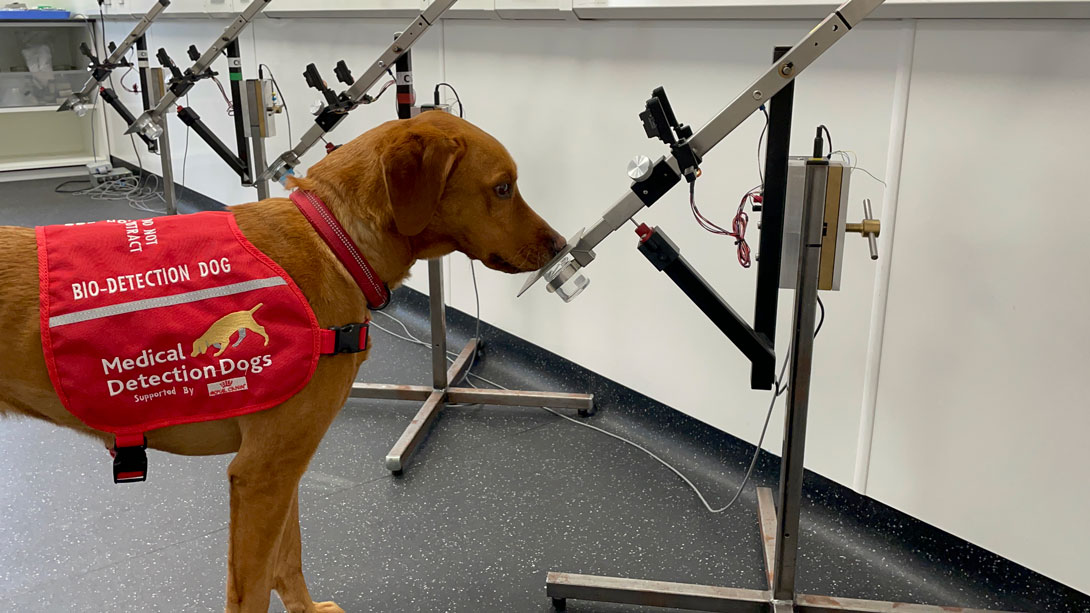
Our new project to train dogs to detect the odour of colorectal (bowel) cancer in urine samples, using the power of their noses, is underway.
We’re looking into whether man’s best friend could help deliver an accurate, non-invasive and more sensitive method of early stage bowel cancer detection that could both increase uptake of the screening and improve health outcomes.
Bowel cancer is the fourth most common form of cancer in the UK. The survival rate is around 60% and many of those not cured present with advanced disease – reflecting how hard it is to diagnose.
Due to the invasive nature of the colonoscopy screening process, only just over half of those offered will take it up. The less invasive faecal sampling is not very specific and patients often still require a colonscopy.
In a UK first, Medical Detection Dogs will use urine samples instead of faecal samples as there is less stigma around supplying these.
This would mean any resultant diagnostic test would be more accessible and more people would likely present for screening. It may also be useful in monitoring treatment response and will help scientists identify the tumour specific compounds the dogs are sniffing which can then be targeted in diagnostic laboratory tests.
The project is in collaboration with Humber Health Partnership who will be suppling us with samples to train the dogs.
We will be applying the same tried and tested methodology that has previously proved that dogs can accurately detect the odours of prostate cancer and bladder cancer, in peer-reviewed trials.
Our dogs have also successfully detected the odour of a number of other diseases such as Parkinson’s disease, Pseudomonas and COVID-19.
6 dogs will be trained to detect the odour of bowel cancer in our training room by sniffing bowel cancer positive and negative samples and indicating when they have found it.
This project will be the first time we’ve used interactive stands in a project. Developed alongside colleagues at the Open University, they have been designed to collect additional data about how the dogs search. This will enable us to learn, in a completely non-biased way, how the dogs interact with the samples, how interesting each one is to them and notice any emotional changes to their response.
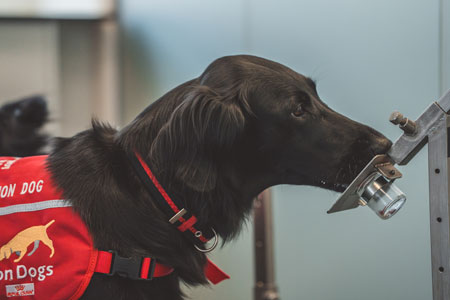
Willow
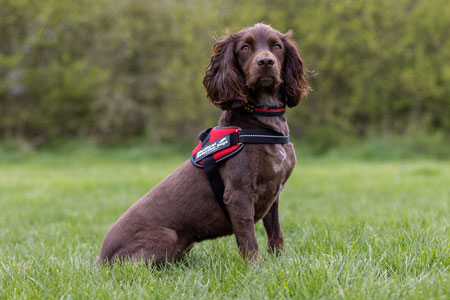
Mango
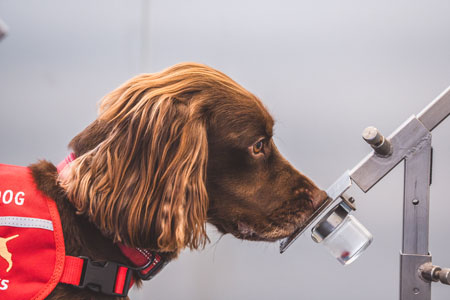
Callie
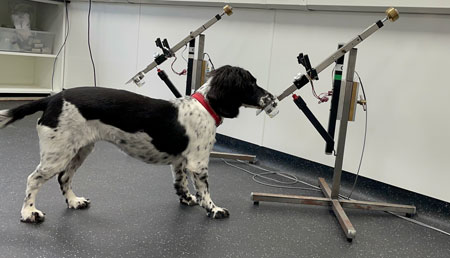
Dotty
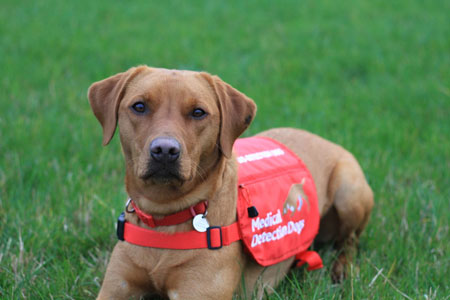
Hetty
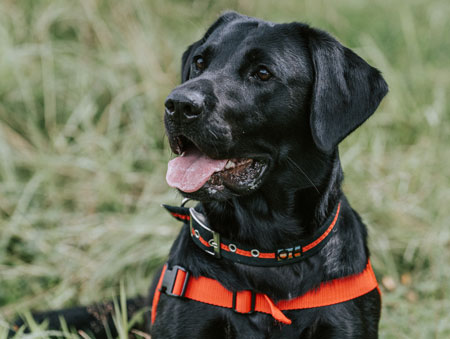
Rosie
The initial six-legged team will be Flat-coated Retriever, Willow, Cocker Spaniels Mango, Callie and Dotty, Fox Red Labrador, Hetty and Black Labrador, Rosie.
Claire Guest, Co-Founder and CEO of Medical Detection Dogs, says: “We believe that information learned from our dogs about the odour of bowel cancer could help deliver an accurate, rapid and non-invasive test for early diagnosis that would be offered to clinicians to use alongside existing diagnostic methods or post treatment monitoring.
“The team has just started in the training room and early signs suggest that once again the world’s most powerful bio sensor, a dog’s nose, will have no trouble recognising the odour.~
Andy Hunter, Colorectal Surgeon at Humber Health Partnership, says: “My team is dedicated to reducing the side effects associated with conventional treatments for rectal cancer while maintaining high cure rates.
“I became interested in methods to detect cancer at its earliest stages and during a conversation with Dr Guest, it became evident that we shared the same vision. With MDD’s support, I swiftly gained the commitment of Hull University Teaching Hospital’s Trust to conduct a trial assessing the utility of canine olfactory detection in cancer diagnosis and follow-up. We began collecting urine and stool samples from our willing and enthusiastic patients. These samples, now combined with relevant clinical data, will provide the MDD team with the necessary tools to train our canine collaborators. I eagerly anticipate seeing the dogs in action. Ultimately, I hope this work can be translated into clinical settings, particularly in the realm of early rectal cancer treatment and follow-up.”
Dr Clara Mancini, Professor of Animal-Computer Interaction at The Open University, says: “Medical Detection Dogs do amazing work, leveraging dogs’ extraordinary olfactory intelligence to advance the early detection of life-threatening diseases, such as colorectal cancer. At the Open University’s Animal-Computer Interaction Lab, we are very excited to collaborate with this pioneering Charity. Our first-of-its-kind interactive technology uses sensors to capture the dogs’ spontaneous response to the biological samples they sniff, producing data that can be analysed using machine learning to offer key insights into the dogs’ knowledge about the odours they examine. This will effectively enable the dogs to share with us information that could relate to the stage or aggressiveness of a disease.”
